Chandigarh, Apr 24 (PTI) The first postal ATM in Punjab and Union Territory of Chandigarh was opened at General Post Office (GPO) here today.
“The ATM would fulfil the long pending demand of the public for ATMs in post offices. A total of 26 ATMs would be made operational in Punjab and Chandigarh this financial year,” Director Postal Services (Headquarters) Punjab and Chandigarh, Manisha Bansal Badal said after inaugurating the ATM.
The second postal ATM would be made operational in Amritsar GPO this month, she said.
The sector 19 post office of Chandigarh will have the second ATM in the first phase, she said, adding that the ATM facility will be available at other head post offices or post offices including Ropar, Ludhiana, Model Town, Ludhiana, Khanna, Jagraon, Patiala, Rajpura, Sangrur, Tarn Taran, Golden Temple, Bathinda, Faridkot, Moga, Ferozepur, Gurdaspur, Batala, Hoshiarpur, Dasuya, Jalandhar City, Jalandhar Cantt, Nawan Shahar, Kapurthala and Phagwara.
As many as 50 ATM cards have been issued to the SB Account holders by GPO Chandigarh and this facility could be availed by all the customers of post offices having core banking facility, Manisha said.
She said that more than 85,000 Sukanya Samridhi Accounts have been opened in Punjab Circle till date as a part of ‘Beti Bachao Beti Padhao’ campaign.
Girls born on or after December 3, 2003 are eligible for opening accounts under Sukanya Samridhi Yojana upto December 1, 2015.
With the launch of the postal ATM in the city today, customers will get all the facilities available in core banking like cash withdrawal, mini statement, fast cash, balance enquiry, PIN Chandigarh, fund transfer within own post office, Saving Accounts and transfer of funds to other accounts of post office, Manisha said.
A maximum of Rs 10,000 can be withdrawn at one time, she said, adding that with the launch of the ATM, all modern and core banking facilities have been made available at the post office
New Delhi/Jaipur, Apr 24 (PTI) Facing criticism for his “insensitivity” in going ahead with his speech at the rally where a farmer from Rajasthan committed suicide, Delhi Chief Minister Arvind Kejriwal today acknowledged his “mistake” and tendered an apology, which was “rejected” by the family of the deceased.
The family of farmer Gajendra Singh, 41, who ended his life by hanging himself from a tree at a rally called by AAP on Wednesday, rejected the apology and demanded a CBI probe into the incident.
“I was to deliver an hour-long speech but I wrapped it up in 10-15 mins. I think that was my mistake. Probably I should not have spoken. If that has hurt anynone’s sentiments I would like to apologise,” an under-fire Kejriwal said.
He, however, insisted that the focus should not deviate from the “real” issues being faced by the farmers.
“I am guilty. Blame me. I feel the rally should have been called off. But please focus on the real issue of the farmers and desist from politicking. Whoever is guilty hang him but the focus of the debate should be on why the farmers are committing suicide,” Kejriwal said.
The Delhi CM had drawn flak for making a 20-minute speech at his Jantar Mantar rally even after the incident had taken place. Not even caring to reach the spot where Gajendra’s lifeless body had fallen after his death, Kejriwal had ranted against Prime Minister Narendra Modi, accusing him of working for the “super rich”.
Senior AAP leader Kumar Vishwas had said the incident was an attempt to sabotage the rally and sully the party’s image, unwittingly implicating Gajendra Singh in a sinister plot to discredit his party.
In another comment considered “crass” by many, another senior AAP leader Ashutosh had said the next time anybody tries to commit suicide he would tell Kejriwal to rescue him.
“If Arvind had stopped his speech midway, there would have been a stampede-like situation. And why are we being blamed? What did the policemen do? Not even a single policeman moved despite repeated requests by the CM.
“The next time anyone tries to commit suicide, I will ask the Delhi CM to climb the tree and save him,” he said but later apologised for his remarks.
A veteran freedom fighter, who served in Netaji’s Indian National Army, died after a brief illness at his native Manethi village near here, his family said today. He was 92.
Nand Lal Bharti was a soldier of Netaji Subhash Chander Bose’s INA infantry, active during the Second World War. The freedom fighter was also imprisoned several times during his service with the INA.
Bharti died on the night of April 21 after a brief illness. The mortal remains of Bharti were consigned to the flames yesterday with full state honours in the village, about 30 km from from Rewari.
Policemen along with district authorities fired 21-round salute in the air as a mark of respect for Bharti.
A suicide note in Hindi dropped by the man from the tree before he hung himself said he had nothing to look forward to in life as his entire crop had been destroyed by unseasonal rains.
NEW DELHI: A farmer from Rajasthan, his crops ruined by rains, hanged himself from a tree at an AAP rally here on Wednesday just before Delhi Chief Minister Arvind Kejriwal addressed thousands against the controversial land ordinance.
The dramatic death of Gajendra Singh, a father of three, immediately turned into a political drama, with the Aam Aadmi Party blaming Delhi Police and the BJP and the Congress attacking Kejriwal and the AAP.
Shortly after doctors at the Ram Manohar Lohia Hospital declared the man dead, Home Minister Rajnath Singh told Delhi Police, which reports to him, to hold an inquiry into the death.
The sensational incident took place at Jantar Mantar in the heart of the city where thousands from Delhi and other states had turned up to denounce the land bill at a mass meeting called by the AAP.
Three AAP activists who saw the man hanging climbed the tree and tried to bring him down. But as they untied the scarf the farmer had tied to a tree branch to hang himself, his body fell with a loud thud.
As chaos gripped the venue, an IANS reporter at the site saw that the man was barely breathing. His tongue was protruding.
One of the AAP activists who had climbed the tree fainted on the branch. Others then clambered up and brought him down after sprinkling water on his face.
A suicide note in Hindi found at the spot said the man was taking his life because untimely rains had destroyed his crops and ruined him. He ended the note with “Jai Jawan, Jai Kisan, Jai Rajasthan”.
As emotionally charged AAP activists raised anti-police slogans, the man was rushed to the Ram Manohar Lohia Hospital where he was declared dead.
Kejriwal was told of the incident — it wasn’t clear then whether the man was alive or dead — by some volunteers on the dias. Thinking that the man was probably alive, the chief minister said he would call on him affer the rally.
After a hard-hitting speech in which he accused the Narendra Modi government of trying to snatch farmers’ land to give it to the “super rich”, Kejriwal and Deputy Chief Minister Manish Sisodia drove to the hospital.
By then, Delhi Congress leader Ajay Maken had visited the hospital and remarked that both the AAP and police should have taken steps to avoid the suicide.
At his party office, BJP spokesman Sambit Patra asked: “Why didn’t the AAP leaders stop the farmer from committing suicide?”
Congress vice president Rahul Gandhi also visited the hospital. He later told the media: “We are with the farmer’s family. We will help them.”
Earlier, Kejriwal vowed to organise farmers all over the country on the issue.
Modi had betrayed the trust of the farmers after taking their vote and forming a government, Kejriwal told the protesters.
When the farming community voted for Modi in the Lok Sabha election, they were confident that he would be able to end suicides by farmers.
“But today farmers have realized that this is not a government of farmers, it is a government of anti-farmers,” he said to loud cheers.
“This is ‘super amiron ki sarkar (a government of the super rich).”
Kejriwal questioned the need to enact an ordinance to make land takeover easy.
“What is the urgency? Is there a big emergency? What is the compulsion? Is some major project stalled? Our farmers want to know.”
The chief minister said farmers all over the country were protesting against the land bill.
He declared that he would not allow land to be taken away from farmers in Delhi without their consent.
Farmers would stop killing themselves in the country only when farming was made profitable, the chief minister said. He said he would write to all the chief ministers on the issue.
The leader of Islamic State, Abu Bakr al-Baghdadi, has been seriously wounded in an air strike in western Iraq, sources have told the Guardian.
A source in Iraq with connections to the terror group revealed that Baghdadi suffered serious injuries during an attack by the US-led coalition in March. The source said Baghdadi’s wounds were at first life-threatening, but he has since made a slow recovery. He has not, however, resumed day-to-day control of the organisation.
Baghdadi’s wounding led to urgent meetings of Isis leaders, who initially believed he would die and made plans to name a new leader.
Two separate officials – a western diplomat and an Iraqi adviser – confirmed the strike took place on 18 March in the al-Baaj a district of Nineveh, close to the Syrian border. There had been two previous reports in November and December of Baghdadi being wounded, though neither was accurate.
The diplomat confirmed an air strike on a three-car convoy had taken place on that date between the village of Umm al-Rous and al-Qaraan. The attack targeted local Isis leaders and is believed to have killed three men. Officials did not know at the time that Baghdadi was in one of the cars.
Hisham al-Hashimi, an Iraqi official who advises Baghdad on Isis, told the Guardian: “Yes, he was wounded in al-Baaj near the village of Umm al-Rous on 18 March with a group that was with him.”
US officials were unable to confirm the report. “We have nothing to confirm this report,” said a Pentagon spokesman.
Baghdadi is understood to have been spending much of his time in al-Baaj, about 200 miles west of the Isis stronghold of Mosul. “He chose this area because he knew from the war that the Americans did not have much cover there,” said a source privy to some of Baghdadi’s movements. “From 2003 (the US military) barely had a presence there. It was the one part of Iraq that they hadn’t mapped out.”
Al-Baaj, a Sunni tribal area, has long remained outside of state control even under ousted Iraqi leader Saddam Hussein’s regime, and was considered a safe haven for jihadists from 2004 onwards.
Residents have long used smuggling networks as well as small valleys and tracks to import goods from nearby Syria and to other parts of Sunni areas of Iraq in Nineveh and Anbar. Al-Qaida in Iraq and all its subsequent incarnations, including Isis, had largely unfettered access to the routes until al-Baaj became a focus of US surveillance earlier this year.
Baghdadi had at least one earlier brush with death when US jets attacked a two-car convoy on the outskirts of Mosul on 14 December. His close aide Auf Abdul Rahman al-Efery was killed when a rocket fired from a war plane hit one of the cars. Baghdadi was believed to be in the second car, which was not hit.
Isis: the inside story
Read more
In recent months, air strikes have been increasingly effective in targeting the Isis leadership. Baghdadi’s deputy, Abu Muslim al-Turkmani, and the head of the group’s military operations in Iraq were both killed in early December.
After seizing control of a large chunk of Iraq and Syria last June, and threatening Baghdad and Irbil, Isis has recently lost substantial ground in both countries. An offensive led by Shia militias and the Iraqi military took back Iraq’s fourth city, Tikrit, last month, as well as close to 7,000 sq km in the centre of the country.
A Kurdish push from the north in January reclaimed close to 20,000 sq km. Both offensives appear to be paving the way for an assault in Mosul, which is not expected before the autumn. Isis remains in full control of Mosul, as well as Anbar province and much of eastern Syria.
The border between the two countries is largely redundant and, despite air strikes, the group remains in control of six crossing points that allow a ready flow of funds, fighters and weapons. Baghdadi had declared the swath of land from eastern Aleppo to central Iraq to be part of a caliphate that he leads.
While Baghdadi invokes authority as a religious leader, the constant threat from the skies has led to some of its command and strategic decisions being made by other members of the leadership. Since Baghdadi’s wounding, Isis’s military and Shura councils have become increasingly prominent in decision-making, the source close to the organisation revealed.
Prosecution says Jeffrey Okafor, accused of murdering Carl Beatson Asiedu in 2009, phoned a woman and told her he had been involved in a ‘madness’
A man accused of stabbing a CBBC presenter to death confessed to a girlfriend and then fled to Nigeria on his brother’s passport, a court has heard.
Jeffrey Okafor, 24, of East Dulwich, south-east London, is accused of murdering 19-year-old Carl Beatson Asiedu outside a nightclub in the summer of 2009.
Opening the trial, Sarah Whitehouse QC, prosecuting, told Woolwich crown court that the stabbing had taken place after a crowd of young people spilled out of Club Life near Vauxhall station in south London.
Three people were specifically targeted, including Asiedu, who appeared in the CBBC children’s series MI High.
Two of them survived but, Whitehouse said, “Carl Beatson wasn’t so fortunate.” She said Okafor was part of a larger group who attacked a smaller group during the incident on 1 August 2009.
As well as appearing in the CBBC show, Asiedu had also helped to form a music group called Kid’n’Play and was known as Charmz. The musician, whose group was often booked to play at nightclubs in London and Leicester, performed with his friend at Club Life that night at an event called Summer Vibz.
After their performance, they stayed and had some drinks. Whitehouse told the jury the victim had had very little alcohol and said it did not appear that drink had played any part in the violence that unfolded when they left the club.
Asiedu was attacked after leaving the club. Efforts to revive him were unsuccessful and he was pronounced dead at the scene, the court heard. A pathologist concluded the cause of death was a single stab wound to the front of the chest.
“After the attack, Jeffrey Okafor actually confessed to a girlfriend that he had stabbed Carl Beatson,” Whitehouse said. Within about an hour of the attack, he phoned a girlfriend and told her he had been involved in a “madness”, the court heard.
A few days later he allegedly told the same woman he had stabbed Charmz in the stomach and gave her a pair of black gloves, asking her to look after them. Whitehouse said those gloves had been passed to police, and DNA which may have come from the victim was on one of the gloves.
The defendant also phoned and asked the woman to put a T-shirt “into a plastic bag and put it into a bin in the road”, the jury heard.
Later that day, when he returned home, Okafor seemed agitated and said: “I’m going down” and “The Feds are going to be on to me”, Whitehouse told the court.
On 13 August police went to his home address, planning to arrest him and search the house for any evidence relating to the murder. But Okafor was not at the address, having escaped as the police arrived, the jury heard.
Whitehouse said he had lain low for a time and then early on 17 August 2009 he took a flight from Heathrow to Lagos, using his brother’s passport.
He was extradited from Nigeria in November 2014. He denies murder.
The trial was adjourned until Wednesday morning.
Wealthy countries should agree on a comprehensive plan to take one million refugees from Syria over the next five years to end the unfolding series of boat disasters in the Mediterranean, the UN’s special rapporteur on the human rights of migrants has urged.
UN’s François Crépeau on the refugee crisis: ‘Instead of resisting migration, let’s organise it’
Read more
In a Guardian interview, François Crépeau said Europe was creating a market for people smugglers by failing to act on Syria. He said his plan could be extended to seven years or widened to include other nationalities, including Eritreans who have been fleeing war.
Migrant shipwrecks in the Mediterranean have claimed more than 1,750 lives this year – 30 times higher than the same period in 2014.
“We know a great number of Syrians in particular are going to leave these countries and if we don’t provide any official mechanism for them to do so, they will resort to smugglers. The inaction of Europe is actually what creates the market for smugglers,” said Crépeau, a law professor at McGill University in Montreal, Canada.
“We could collectively offer to resettle one million Syrians over the next five years. For a country like the UK, this would probably be around 14,000 Syrians a year for five years. For Canada, it would mean less than 9,000 a year for five years – a drop in the bucket. For Australia, it would probably be less than 5,000 per year for five years.
“We can manage that.”
François Crépeau, UN Special Rapporteur on human rights of migrant, speaks at a news conference
François Crépeau, the UN’s special rapporteur on the rights of migrants, said Europe was creating a market for people smugglers by failing to act on Syria. Photograph: SNTV
Crépeau’s comments came as Italy pressed the EU to devise concrete, robust steps to stop the tide of migrants on smugglers’ boats, including setting up refugee camps in countries bordering Libya.
Matteo Renzi, the prime minister, said Italy had saved 200,000 migrant lives at sea since the start of 2014 but that his country’s “noble, generous reaction alone isn’t enough”.
“We are asking Europe to be Europe, not just when it’s time to devise a budget,” Renzi said, to help combat “21st-century slave drivers” of migrants.
Defence minister Roberta Pinotti also said human traffickers must be targeted with military intervention. “We know where the smugglers keep their boats, where they gather,” Pinotti told Sky TG24 TV in an interview. “The plans for military intervention are there.”
smugglers at the main departure point for Mediterranean migrant crossings in Libya scoffed at plans to launch a military campaign. “What are they going to do, put two frigates here? Two warships? In Libyan waters? That’s an invasion,” the smuggler told the Guardian.
On Thursday EU leaders will hold an emergency summit in Brussels called in the wake of a shipwreck off Libya last weekend that authorities believe may have killed more than 800 migrants. If confirmed it would be the highest known loss of migrants’ lives in a single incident in the Mediterranean.
In the latest arrival of migrants, an Italian naval vessel docked in the Sicilian port of Augusta with 446 people on board who had been rescued from a smugglers’ boat on Tuesday off the southern coast of the Italian mainland. The navy said 59 of the migrants are children.
Britain has given £700m in humanitarian aid to Syria but agreed to settle only 143 Syrian refugees. That has been criticised by Nigel Farage, the leader of the rightwing Ukip, party who is otherwise hardline on immigration. The US has a similar record.
Crépeau said the west had to acknowledge the refugees were “stuck in a place where there’s no future for themselves or their children” and had to change policy.
“This is going to be a long-term commitment and we should go at it together. It’s a much better system for everyone – you reduce the number of deaths, you reduce the smuggling business model, and you reduce the cost of asylum claims.”
The plan could allow Syrian refugees to apply from places such as Istanbul, Amman and Beirut to come to Europe, North America and Australia “for a meaningful chance to resettle, instead of paying thousands of euros to only die with their children in the Mediterranean”.
Crépeau also defended “economic migrants”, many who try to come to Europe and developed countries from sub-Saharan Africa. They were “people who may not be in need of protection but are desperate for a future because there’s no job for them anywhere near their country”.
Instead of resisting mobility, countries had to organise it, Crépeau said. That meant taking action on poor working conditions and tackling the underground labour market.
Migrants trying to reach Greece are rescued by members of the Greek coastguard and locals just off the island of Rhodes on 20 April.
“They come to Europe because they know there are jobs there. Countries in Europe say, ‘We don’t have any job for our own citizens, we can’t welcome all these people’, but that’s not true. There are jobs. There are very poorly paid jobs in agriculture, in construction, in hospitality or in the care of the elderly or care of young people.
“We refuse to acknowledge our underground labour market because we like the price of tomatoes in June; we like our cleaning lady to be that cheap. These people know there are jobs. This is a huge pull factor.”
Crépeau suggested a seasonal entry visa that would allow low-skilled migrants to enter the country for a certain number of months for a number of consecutive years. If the migrant didn’t find work in the first four months, they would return home and try again the next year.
“If you create mechanisms that incentivise people, you would not have underground immigration to such an extent that you have,” Crépeau said.
“Let’s not be afraid of mobility. Mobility is exactly what we need.”
He pointed to the example of the UK between the first enlargement of the European Union in 2005 and the credit crunch of 2008. In that time, the country welcomed 1.5 million central Europeans and at least two-thirds of them left after 2009.
“This is exactly the flexibility of the labour market that we’re looking for,” he said.
“If we develop, regulate, organise mobility, we will have, in the long run, much better results. “But for that we need political leadership to happen. We need people who are able to say to that Sun journalist [the controversial columnist Katie Hopkins who compared migrants to “cockroaches”], ‘You’re wrong and you should know that.
Associated Press
Pune, India: Suzlon Group, world’s sixth largest wind turbine manufacturer and pioneer of Green Energy in India, in continuation of its vision of ‘Powering a greener tomorrow’ celebrates the ‘Earth Day’ at it’s group headquarters- One Earth Campus in Pune, India. Suzlon distributed 300 kgs of free manure to employees, prepared from recycled garden waste generated within Suzlon’s One Earth Campus. The objective of the initiative was to encourage employees to use the manure for plantation at their residence. Further, Suzlon also urged it’s employees in Pune to use bicycles & car pooling to commute to work on 22nd April which is Earth Day. An educational documentary on environment titled ‘An Inconvenient Truth’ was screened for employees at Suzlon’s headquarters. Suzlon marked the International Earth Day to increase awareness on protecting the planet and appreciating Earth’s natural environment. Additionally, Suzlon Group with over 26,000 MW of wind energy installations across 30 countries reduces over 44 million tonnes of carbon dioxide emissions every year.
Speaking on the occasion, Mr Tulsi R. Tanti, Chairman, Suzlon Group said: “We believe that environment sustainability is the only way to shape and protect our future. The initiatives on the occasion of International Earth Day are small steps to encourage our employees to come together, towards building a sustainable and favourable ecosystem to provide better world to our children.”
Apart from being a technology leader, Suzlon endeavors to protect the environment, strengthen communities and propel responsible growth. The Suzlon Foundation, as one of the goals works towards ensuring minimal impact on the environment. The initiatives have had the following positive impact so far:
ü 65,749 CuM water conserved
ü 1.21 million trees planted
ü 170 tonnes grass grown
ü Over 3,627 ha land treated for conservation
ü 83,803 kg solid waste recycled
Suzlon group’s vision to preserve as well as expand the green blanket cover through its 26,000 MW wind energy installation globally and CSR initiatives, is testimony of Suzlon Group’s commitment to contribute towards a sustainable ecosystem for the future.
New Delhi: International news channel Al Jazeera was today forced to go off air in India for five days as the government penalised it for repeatedly showing wrong maps of the country.
Al Jazeera today only showed a blank screen with a message saying that “as instructed by the ministry of Information and Broadcasting, this channel will not be available from 00.01 hours on 22nd April till 00.01 hours on 27th April 2015.”
Earlier in an order, the Information and Broadcasting Ministry had said that it had come to its notice that Al Jazeera had shown a wrong map of India in some of its broadcasts in 2013 and 2014, after which the matter was referred to Surveyor General of India (SGI).
The SGI had observed that in some of the maps displayed by Al Jazeera, “a portion of Indian territory of Jammu and Kashmir (i.e. PoK and Aksai Chin) has not been shown as a part of Indian territory.” The channel also did not show Lakshadweep and Andaman Islands in some of the maps, the SGI said.
The SGI also said that the maps were not in accordance with the Survey of India copyright map and is also against the National Map policy, 2005 and map restriction policy issued by Ministry of Defence from time to time. The Ministry of External Affairs also pointed out similar airing of a wrong map by the channel.
In their reply to a Show Cause Notice, Al Jazeera said that all maps that are displayed by them are generated by an internationally known software used by Global News Providers.
The channel also added that it takes Indian government’s concerns about maps very seriously and accordingly reviews all its India and Pakistan maps to ensure compatibility with recent official UN map.
As per the order of the Information and Broadcasting Ministry, the Inter Ministerial Committee which was also attended by representatives of the Ministry of External Affairs, after deliberations, held that the channel had clearly violated the provisions of the programme code and recommended to prohibit transmission or re-transmission of the channel throughout India for five days.
In a gruesome incident, a man allegedly hacked his wife to death today and walked to the police station at nearby Pollachi with the severed head, police said.
The accused, Chinnapparaj (49), was an agricultural labourer and he had frequent quarrels with his 40-year-old wife over her illicit relationship with a local man since the last few months, police said.
Despite her husband’s warning, the woman continued her relationship.
Chinnapparaj found his wife missing from the house last night and surmising that she was with her paramour, waited with a sickle, chased and killed her as she was returning home about 8.30 AM today, police said.

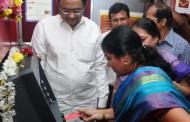
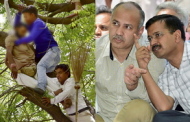
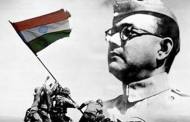

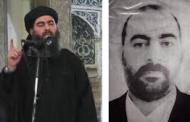

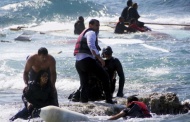








Recent Comments